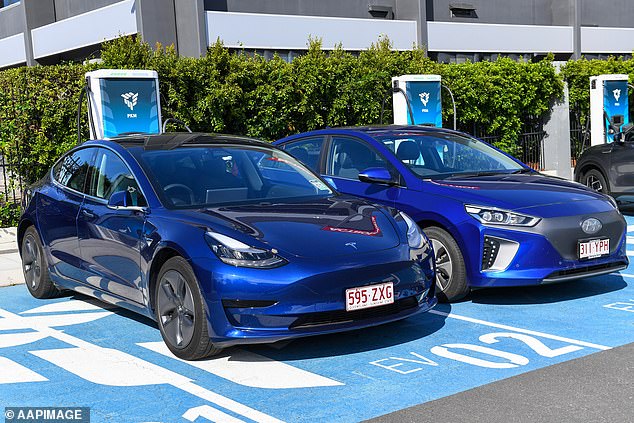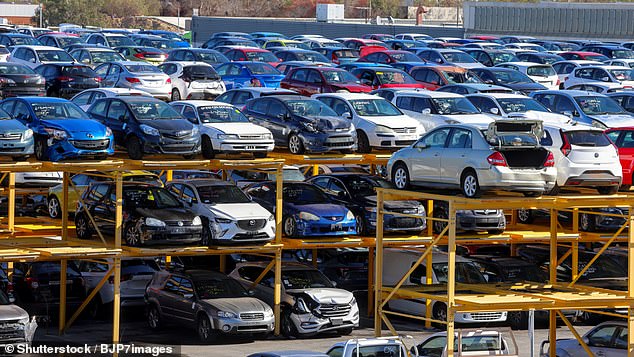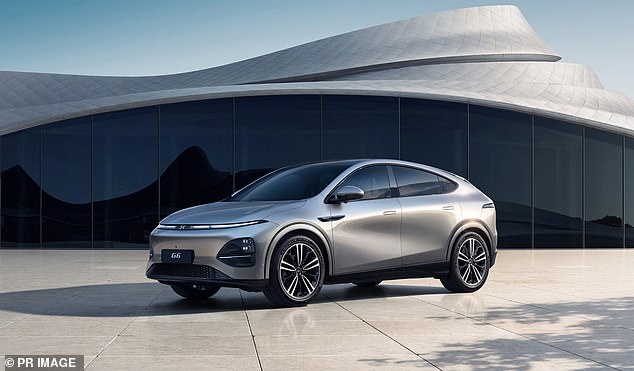Your next car may have an unknown name.
Chinese electric vehicle makers are lining up to launch models in Australia in the next 18 months, driven by growing interest and changing regulations.
Automotive experts say the influx is likely to benefit buyers as increased competition will force prices down, although they warn motorists may have to do more research than usual.
Zeekr became one of the first little-known Chinese brands to confirm plans to launch in Australia, showing off its luxury compact SUV, called the X, in Sydney on Thursday.
The state-of-the-art battery-powered vehicle, which will be priced under $60,000 when it arrives in October, will compete with existing models from Tesla and Volvo, as well as the rest of a new generation of vehicles.
Hussein Dia, professor of future urban mobility at Swinburne University, said upcoming electric vehicle launches had the potential to change Australia’s automotive mix.
“This is what we have been waiting for and asking for: more variety in models and sizes of electric vehicles and also in a range of prices,” he said.
“It will be good for consumers because it means lower prices, more competition and, from what I have seen, they are quality vehicles.”
However, the brands may seem strange to Australian car buyers.
The XPeng G6 is among the electric vehicles that will flood the Australian market. (HANDOUT/XPENG)

Electric vehicles from little-known Chinese brands will compete with existing models from Tesla and Volvo. (Jennifer Dudley-Nicholson/AAP PHOTOS)
These include Geely, XPeng, Jaecoo, Skywell and Aion, and vehicles ranging from Range Rover-style SUVs to electric minicars.
Professor Dia said some would be luxury vehicles as many Chinese carmakers had partnered with European brands to hone their approach.
“They’ve been working on this in China for a long time,” he told AAP.
‘They launched joint ventures with international automakers and are now reaping the benefits.’
Electric vehicles will also be launched around the same time as the federal government’s New Vehicle Efficiency Standard, which will put a cap on automakers’ emissions.
Chris Mills, chief executive of Evie Charging, said the increased competition was likely to significantly impact drivers, particularly those who had been driving a budget electric vehicle.
“In this next calendar year, through 2025, we’re going to be inundated with a lot of new cars and new models,” he said.
“And I think it’s true when people say that 50 percent of people who are considering buying a new car are considering an electric vehicle as their next new car.”
Mr Mills said the company was expanding its public charging sites and planned to have 840 bays up and running by Christmas.
The Electric Vehicle Council estimates Australian motorists will buy more than 100,000 new battery-powered cars in 2024, up from more than 87,000 in 2023, despite a slower pace of growth than in 2023.

The Electric Vehicle Council estimates that Australian motorists will buy more than 100,000 new battery-powered cars by 2024
ELECTRIC CAR BRANDS PRESENT IN AUSTRALIA
Zeekr: The Chinese brand, whose name stands for “zero, evolutionary, electric and krypton”, has pledged to bring three electric cars to Australia by the end of 2025. The Zeekr X compact SUV will cost less than $60,000 and is expected to arrive in October.
Geely: The Chinese car giant could attract a lot of attention when it launches its Radar electric pickup truck in Australia later this year. The electric rival to the Toyota HiLux, called the Riddara R6 in other markets, could have a range of up to 571km.
XPeng: Three electric cars from the manufacturer are expected to hit the Australian market over the next three years, with the first model, the G6 SUV, due to be launched in October. Pricing for the vehicle, which promises to go from 0 to 100 km/h in 6.2 seconds, will be announced in September.
Aion: The electric arm of automaker GAC, or Guangzhou Automobile Group, has pledged to launch a battery-powered hatchback, similar in size to a Toyota Corolla, in 2025.
Jaecoo: Jaecoo, a luxury subsidiary of the Chery brand, is expected to bring a mid-size SUV called the J7 to Australia this year. The vehicle has styling similar to a Range Rover and will be available in two- and four-wheel drive configurations.
Jump Engine: Two cars from the Chinese brand are expected to hit Australia by late 2024. Its C10 midsize SUV and T03 small car, also known as a mini-car, will herald its arrival.
Well of Heaven: The brand is expected to launch a competitively priced SUV in 2024. Known as the Skywell ET5 overseas, it will be sold as the EVA 5 locally and promises a range of up to 489 km and a price tag of under $50,000.


